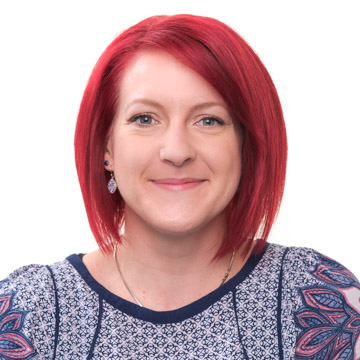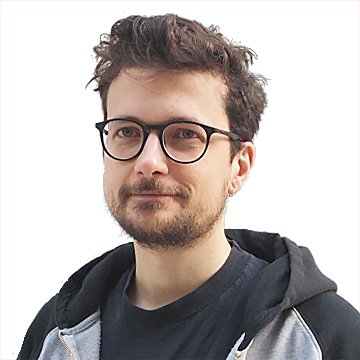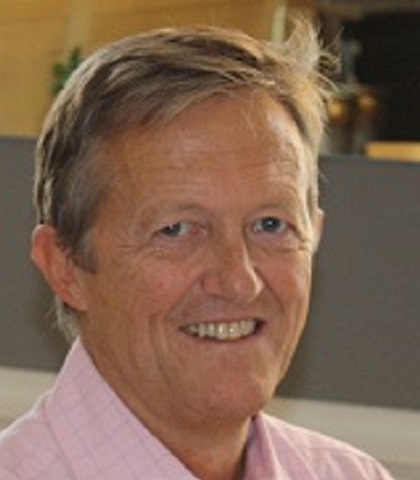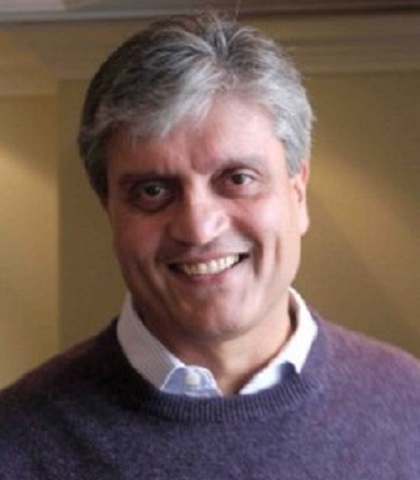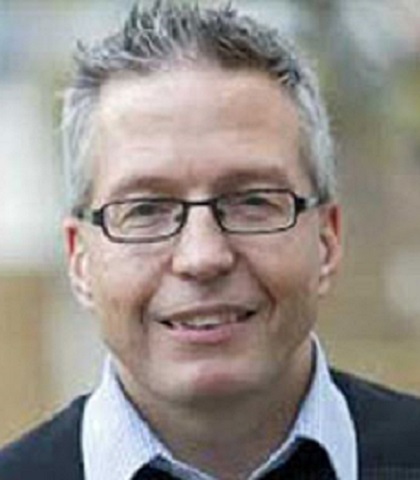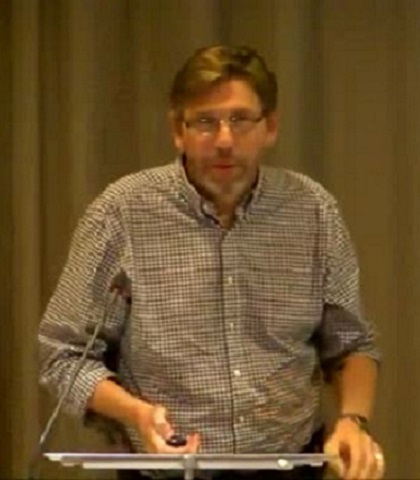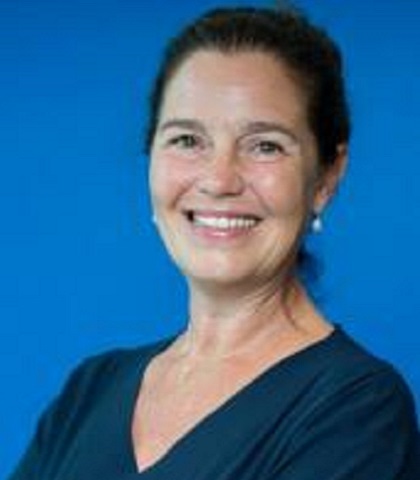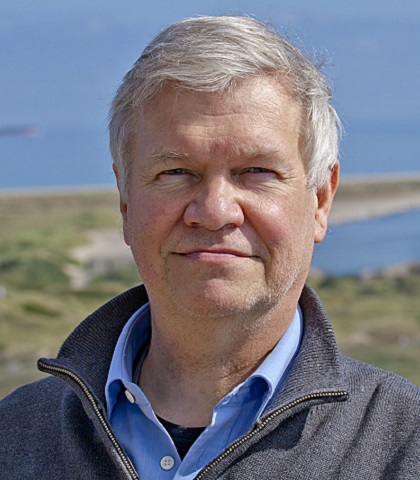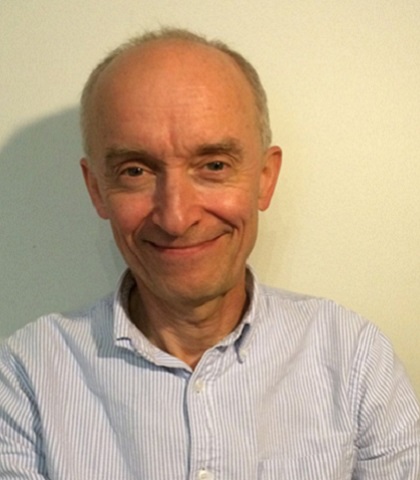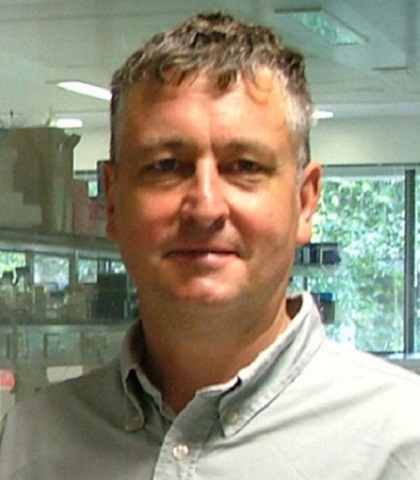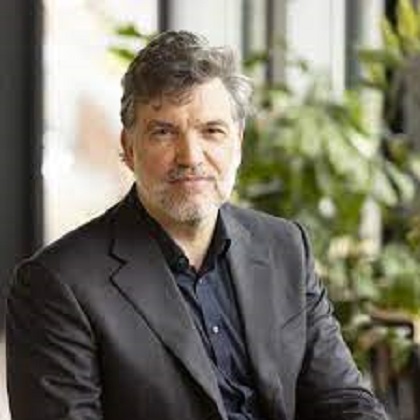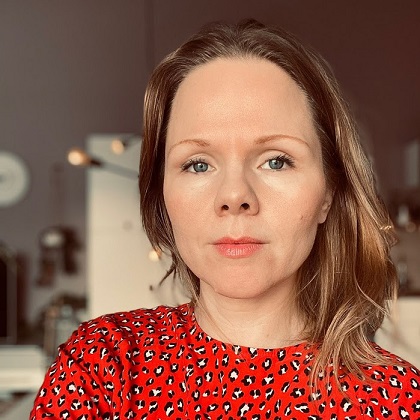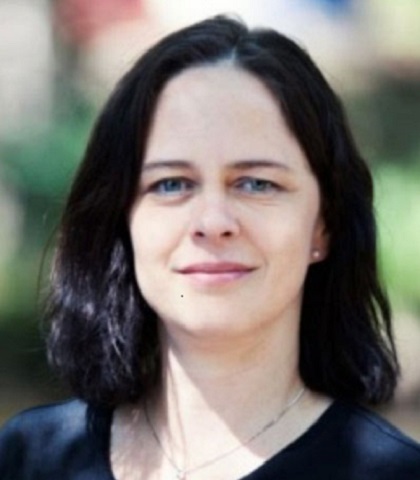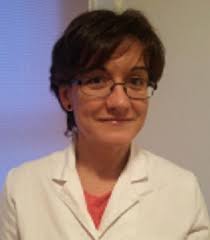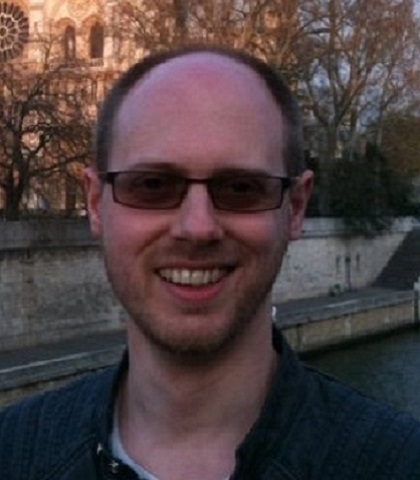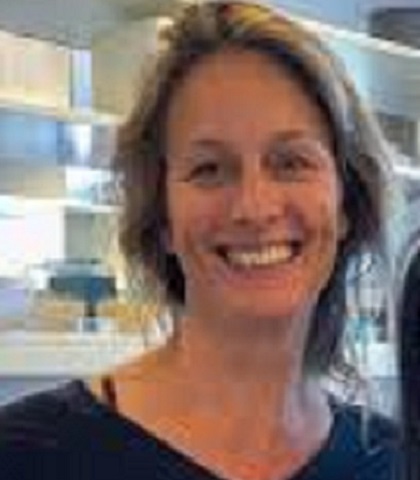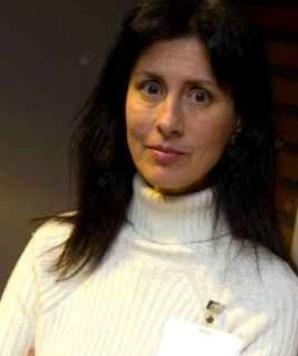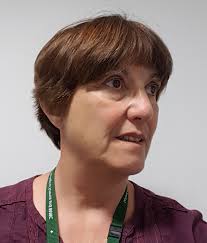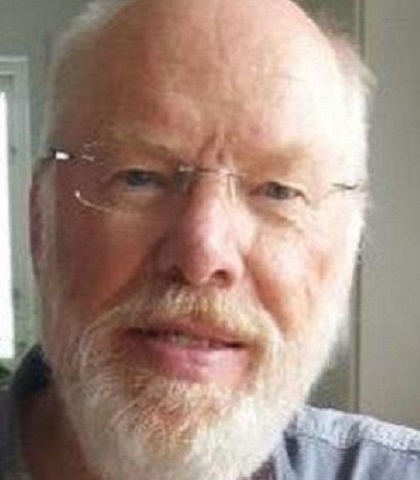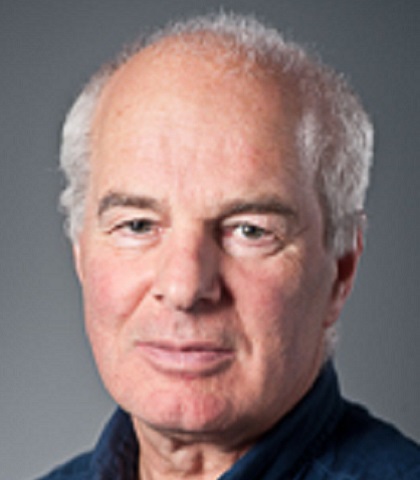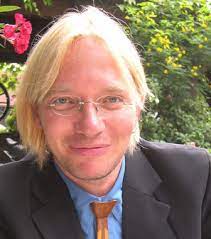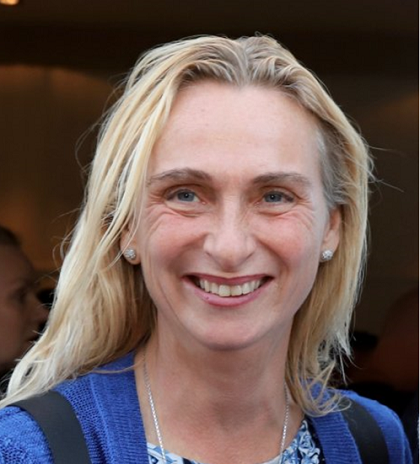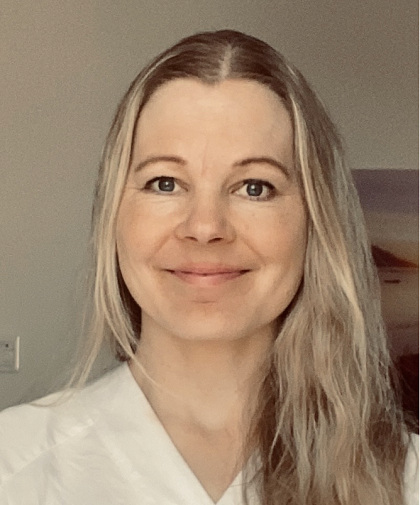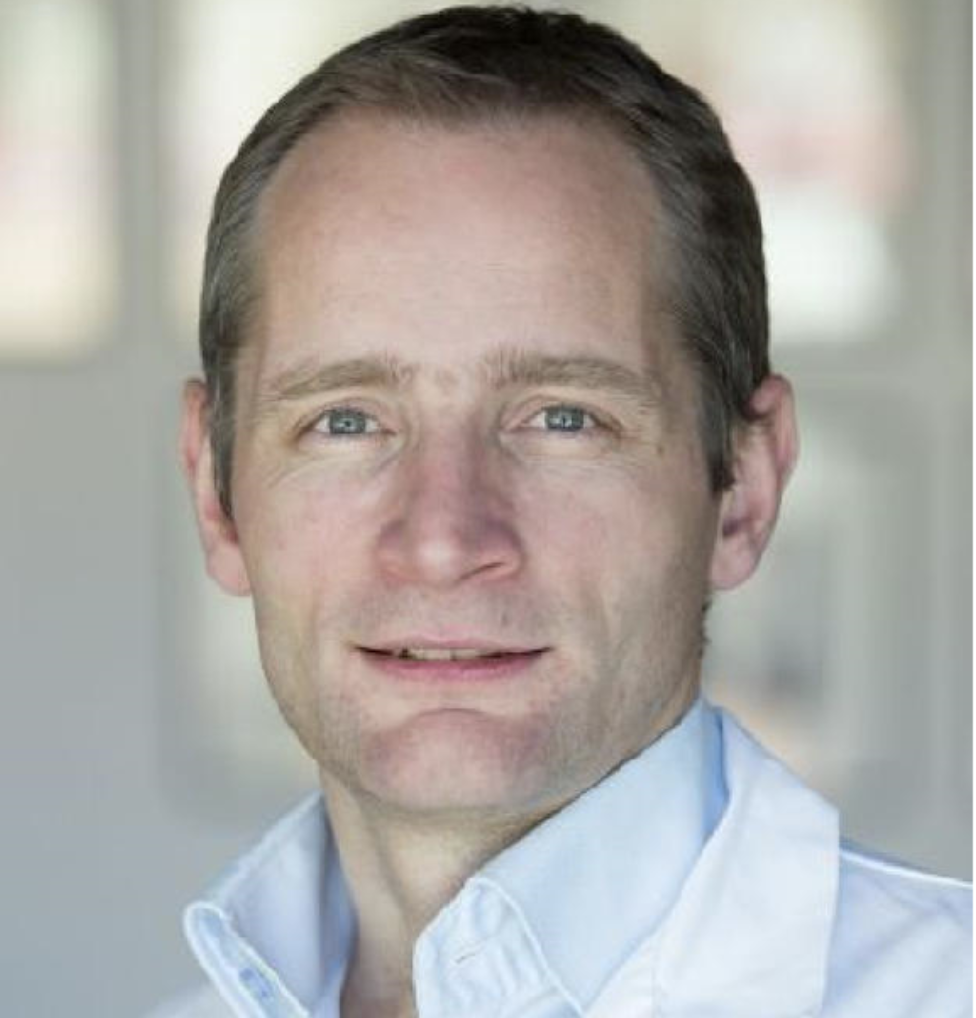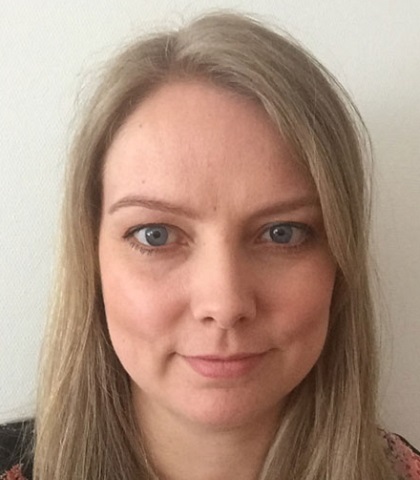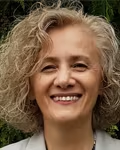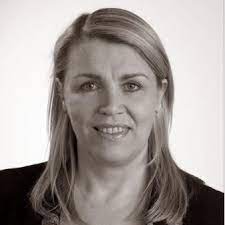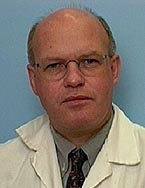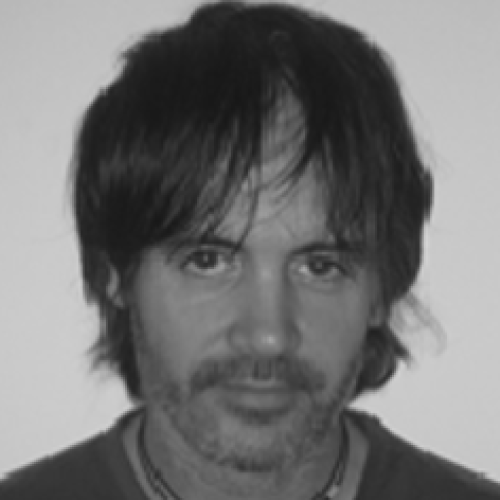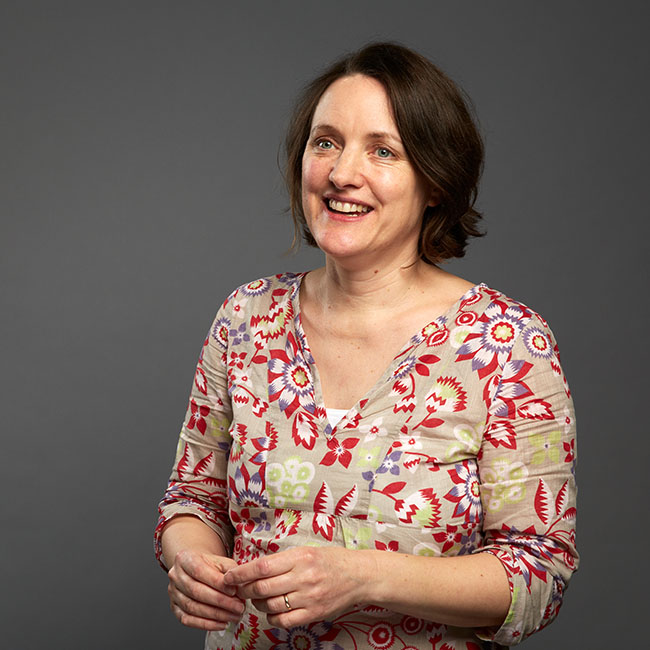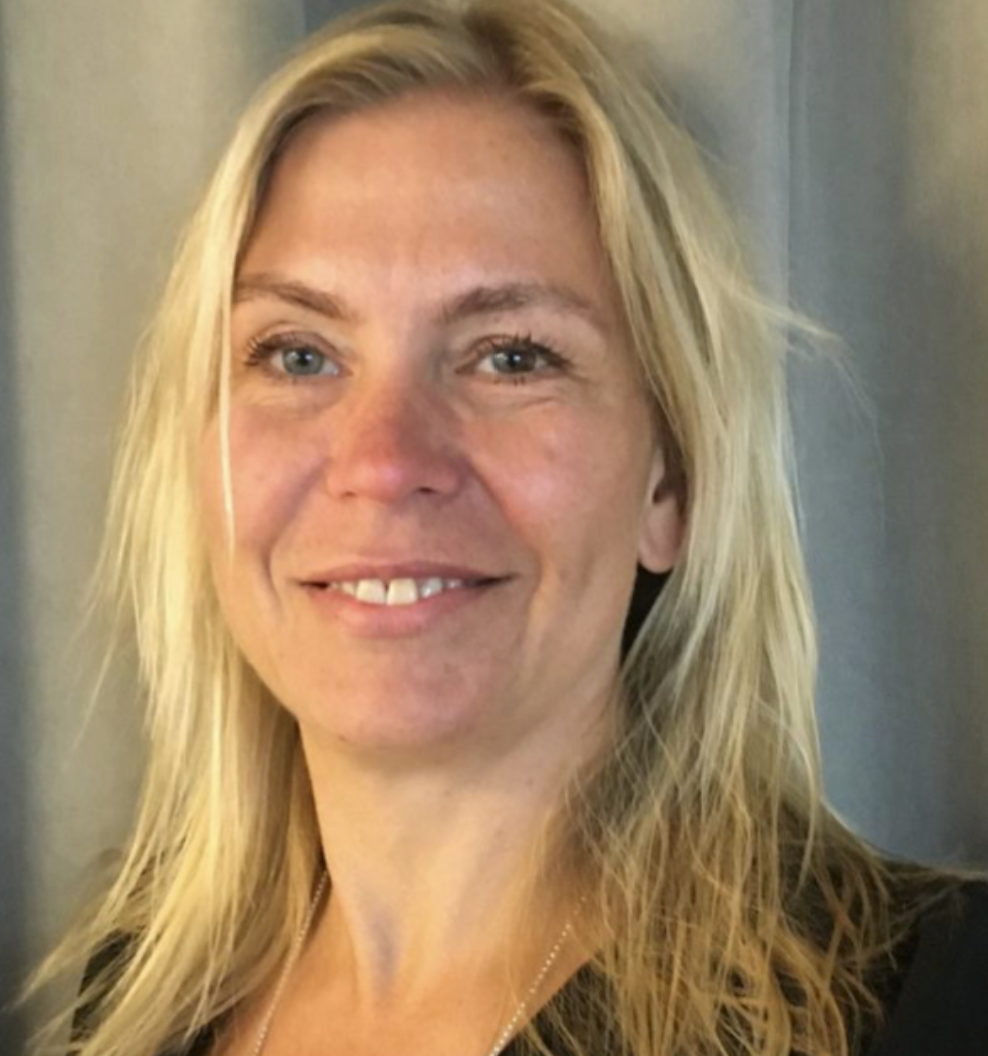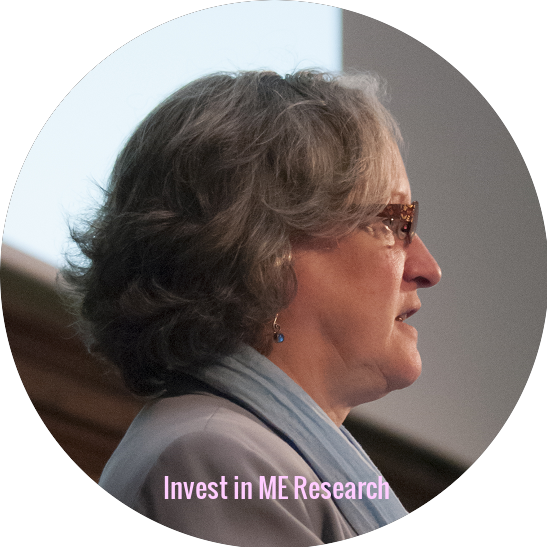
Dr Vicky Whittemore
USA
Dr. Whittemore oversees a grant portfolio that includes basic, translational and clinical studies on epilepsy. These include grants on sudden unexpected death in epilepsy (SUDEP), the genetic epilepsies, and seizure localization studies. In addition, she oversees a grant portfolio on myalgic encephalomyelitis/chronic fatigue syndrome (ME/CFS) and fatigue. Her additional interests are in research on global health issues, stigma, and co-morbidities.
Dr Amolak Bansal
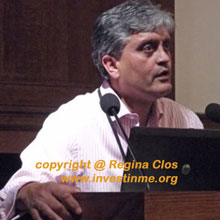
Consultant Immunologist, Spire Hospitals, Surrey, UK
Previously, Consultant in Immunology/Allergy and CFS/ME, Department of Immunology and Allergy, St Helier Hospital, Carshalton, Surrey.
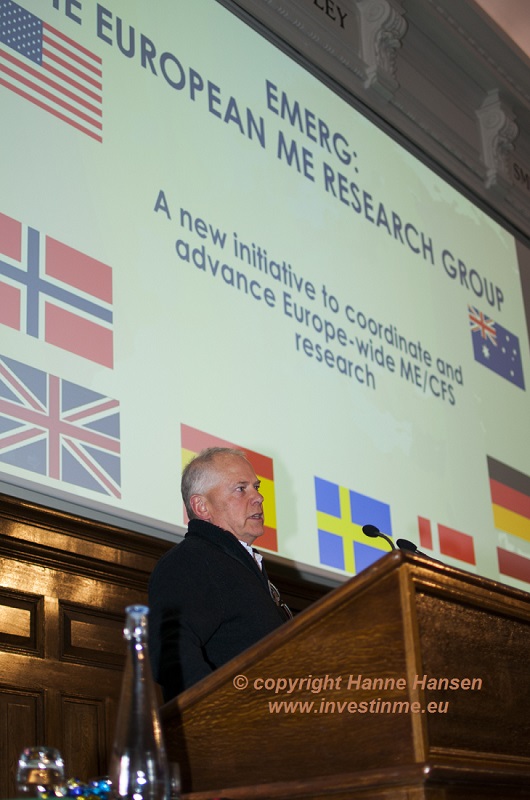
Research Leader, Quadram Institute Bioscience, Norwich Research Park, UK
Professor Simon Carding
UK
Upon completing postgraduate work at the Medical Research Council’s Clinical Research Centre in Harrow,
Professor Carding “emigrated” to the USA to take up a postdoctoral position at New York University School of Medicine,
and then at Yale University as a Howard Hughes Fellow in the Immunobiology Group at Yale University.
While
at Yale an interest in gamma-delta (γδ) T cells was acquired working closely with Adrian Hayday on molecular genetics and then
with Prof. Peter Doherty to establish their role in (viral) infectious disease.
He left Yale after five years to take up a faculty position at the University of Pennsylvania in Philadelphia where he
developed a research interest in mucosal and GI-tract immunology, performing studies in germfree mice with Prof John Cebra
that helped establish
the role of gut microbes in the aetiology of inflammatory bowel disease (IBD).
After 15 years in the USA, he returned to the UK to take up the Chair in Molecular Immunology at the University of Leeds
where he established a new research
programme on commensal gut bacteria and Bacteroides genetics leading to the development of a Bacteroides drug
delivery platform that is being used
for developing new interventions for IBD and for mucosal vaccination.
In 2008 he was recruited by UEA and IFR to develop a gut research programme, taking up the Chair of Mucosal Immunology
at UEA-MED and the position of head
of the Gut Biology Research Programme at IFR, which later became part of the Gut Health and Food Safety (GHFS) Programme.
GHFS research covers a broad area of gut biology including epithelial cell physiology, mucus and glycobiology, mucosal immunology,
commensal microbiology, foodborne bacterial pathogens, and mathematical modelling and bioinformatics.
The success of this programme has led to the establishment of the Gut Microbes and Health research programme
that is integral to the research agenda of The Quadram Institute.
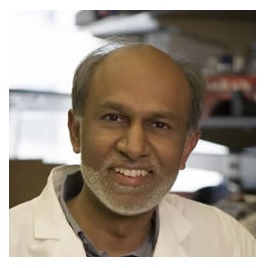
Dr Avindra Nath
USA
Dr. Nath received his MD degree from Christian Medical College in India in 1981 and completed a residency in Neurology from University of Texas Health Science Center in Houston, followed by a fellowship in Multiple Sclerosis and Neurovirology at the same institution and then a fellowship in Neuro-AIDS at NINDS.
He held faculty positions at the University of Manitoba (1990-97) and the University of Kentucky (1997-02).
In 2002, he joined Johns Hopkins University as Professor of Neurology and Director of the Division of Neuroimmunology and Neurological Infections.
He joined NIH in 2011 as the Clinical Director of NINDS, the Director of the Translational Neuroscience Center and Chief of the Section of Infections of the Nervous System.
His research focuses on understanding the pathophysiology of retroviral infections of the nervous system and the development of new diagnostic and therapeutic approaches for these diseases.

Institute for Virology and Immunobiology, University of Wuerzburg
Dr Bhupesh Pristy
Germany
Bhupesh Prusty currently works at the Institute for Virology and Immunobiology, University of Wuerzburg. Bhupesh does research in Microbiology and Virology. His current research focuses on ciHHV-6 reactivation and its clinical consequences.

University of Montreal Hospital Research Centre CRCHUM · Biochemistry and molecular medicine
Professor Alain Moreau
Canada
Since October 2000, Dr. Moreau has been Director of the Laboratory of Molecular Genetics of Musculoskeletal Diseases/malformations. His team is interested in the molecular genetics of musculoskeletal diseases in children (scoliosis) and adults (osteoarthritis). Their work mainly focuses on musculoskeletal diseases that affect children (congenital malformations, bone and cartilage tumours), adolescents (idiopathic scoliosis) and adults (osteoarthritis and joint cartilage degeneration). In addition, his team studies the molecular mechanisms involved in the inflammation and regeneration of musculoskeletal tissues. Dr. Moreau is an active member of the Bone and Periodontium Research Center (a consortium of researchers working in the field of bone) set up by McGill University, the American Society of Bone and Mineral Research and the Scoliosis Society of Quebec. He is also the thematic leader of the Molecular Biology and Genetics Axis of the Scoliosis Quebec Network.
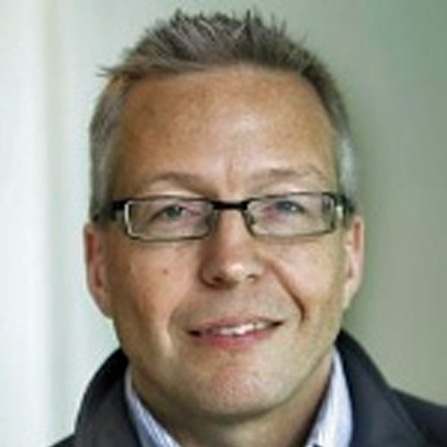
Full Chair Professor in Analytical Chemistry and Neurochemistry at the Department of Chemistry, Uppsala University, Sweden
Professor Jonas Bergquist
Sweden
Professor Begquist has a background as MD, Associate Professor of Clinical Neuroscience , Sahlgrenska University Hospital and the University of Gothenburg. Since 1999 , he has been a researcher in Uppsala, Sweden, and in 2005 was appointed professor of analytical chemistry and neurochemistry at the Department of Chemistry - BMC , Uppsala University. From 2011 he worked also as an adjunct professor of pathology at the University of Utah, Salt Lake City, Utah, USA.
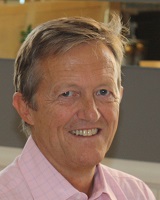
Research Director, Coordinating Research Centre, Bispebjerg and Frederiksberg Hospital, Denmark
Co-chair European ME Research Group
Dr Jesper Mehlsen
Denmark
Dr Jesper Mehlsen graduated as a medical doctor in 1979 and finished his specialist training in 1990.
He has published more than 140 scientific papers in peer reviewed journals, mainly on the autonomic nervous system and more recently
on complex diseases possibly resulting form HPV-vaccination.
For more than 35 years, he has worked clinically and in research with dysfunction of the autonomic nervous system.
Such dysfunction may lead to symptoms from a number of different organs often dominated by diminished control of blood pressure
and heart rate.
Over the past 5 years, he has worked clinically and in research with patients who suspect side effects due to HPV vaccination to
be the cause of a number of symptoms, common to those seen in chronic ME.
Dr Mehlsen is co-chair of the European ME Research Group (EMERG).

Assistant Professor of Medicine. Institution. Brigham and Women's Hospital
Dr David Systrom
USA
Dr. David M. Systrom is a physician at Brigham and Women's Hospital. He is also an assistant professor of medicine at Harvard Medical School. He received his medical degree from Dartmouth Medical School (now known as Geisel School of Medicine).
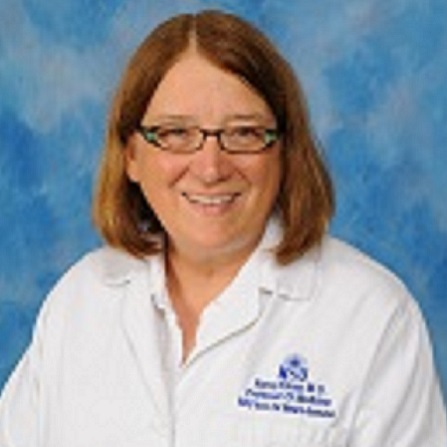
Nova Southeastern University, Florida, USA
Professor Nancy Klimas
USA
Director, Institute for Neuro Immune Medicine, Nova Southeastern University.
Director, Clinical Immunology Research, Miami VAMC
Professor of Medicine, Department of Clinical Immunology, College of Osteopathic Medicine, Nova Southeastern University
Chair, Department of Clinical Immunology, College of Osteopathic Medicine, Nova Southeastern University
Professor Emerita, University of Miami, School of Medicine
n for her research and clinical efforts in multi-symptom disorders, Myalgic Encephalomyelitis/Chronic Fatigue Syndrome (ME/CFS),
War Illness (GWI), Fibromyalgia, and other Neuro Immune Disorders. She is immediate past president of the International Association
for CFS and ME (IACFS/ME), a professional organization of clinicians and investigators, and is also a member of the VA Research Advisory
Committee for GWI, the NIH P2P CFS Committee, and the Institute of Medicine ME/CFS Review Panel. Dr. Klimas has advised three Secretaries
of Health and Human Services, including Kathleen Sabelius, during her repeated service on the Health and Human Services CFS Advisory Committee.
Dr. Klimas has been featured on Good Morning America, in USA Today and the New York Times.
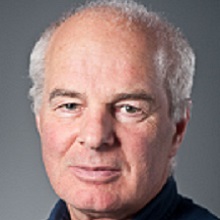
University of Oslo and EMERG
Professor Ola Didrik Saugstad
Norway
Ola Didrik Saugstad is a Norwegian pediatrician and neonatologist, who is internationally recognized for his research on resuscitation of newborn children. Since 1991, he has been Professor of Pediatrics at the University of Oslo and Director of the Department of Pediatric Research at the National Hospital.
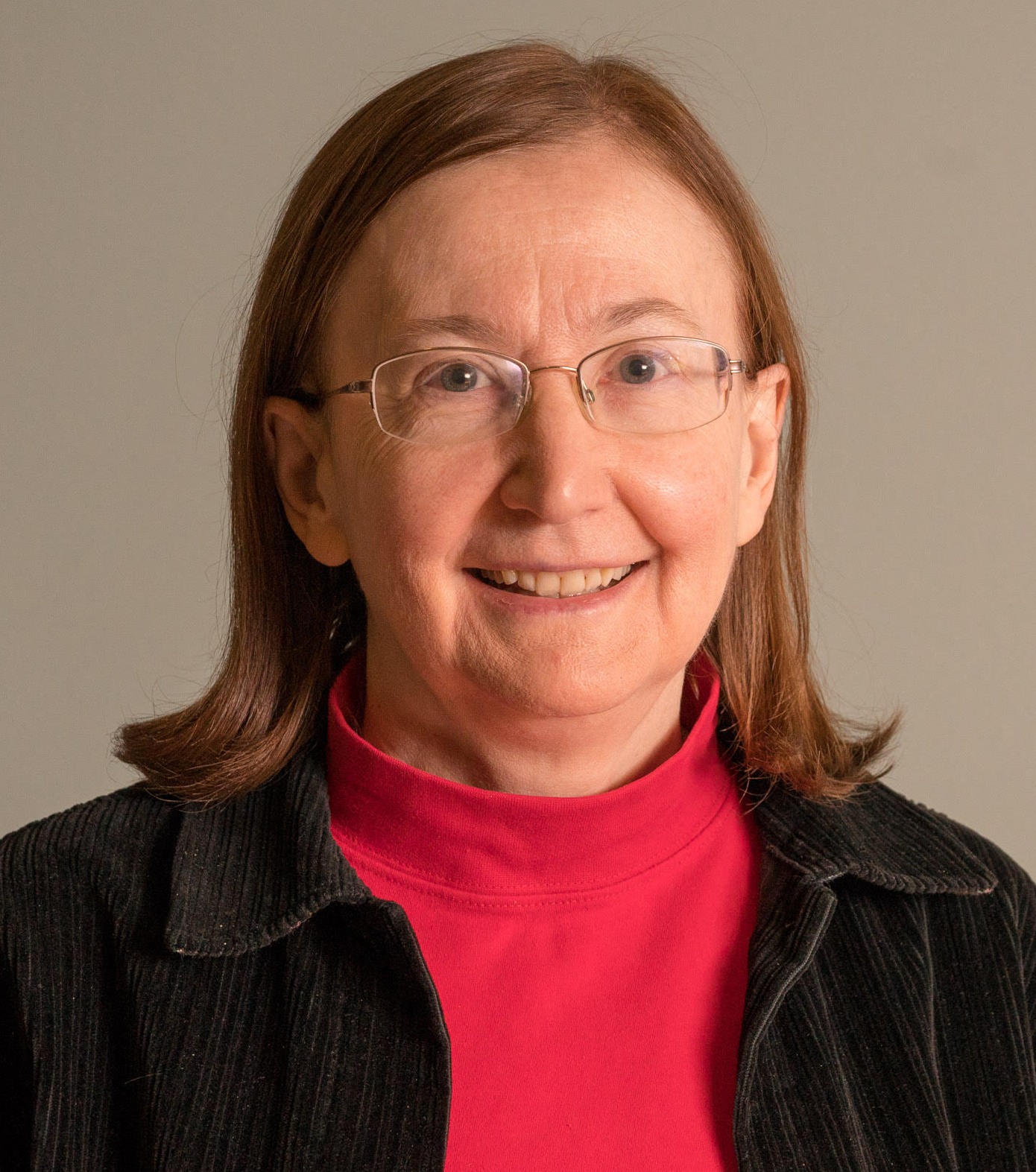
Liberty Hyde Bailey Professor, Department of Molecular Biology and Genetics, Cornell University, New York, USA
Professor Maureen Hanson
USA
Maureen Hanson is Liberty Hyde Bailey Professor in the Department of Molecular Biology and Genetics at Cornell University in Ithaca, NY. Previously she was on the faculty of the Department of Biology at the University of Virginia in Charlottesville and an NIH NRSA postdoctoral fellow at Harvard, where she also completed her Ph.D. degree. While most of her prior research has concerned cell and molecular biology in plant cells, she began a research program on ME/CFS after noting at a 2007 IACFS meeting the paucity of molecular biologists studying the illness. Her lab was part of the 2012 multicenter study organized by Ian Lipkin's group at Columbia University to assess the actual role of XMRV in ME/CFS. Dr. Hanson has a current project to examine the microbiome of ME/CFS patients and controls, in collaboration with Dr. Ruth Ley (Cornell Microbiology) and Susan Levine, M.D. (Manhattan, NY). Dr Levine is also collaborating with Dr. Hanson on an immune cell gene expression project that involves Dr. Fabien Campagne and Dr. Rita Shaknovich at Weill Cornell Medical School in New York City. Dr. Hanson's third project concerns analysis of blood samples from individuals performing a two-day cardiopulmonary exercise test at Ithaca College under the supervision of Dr. Betsy Keller.
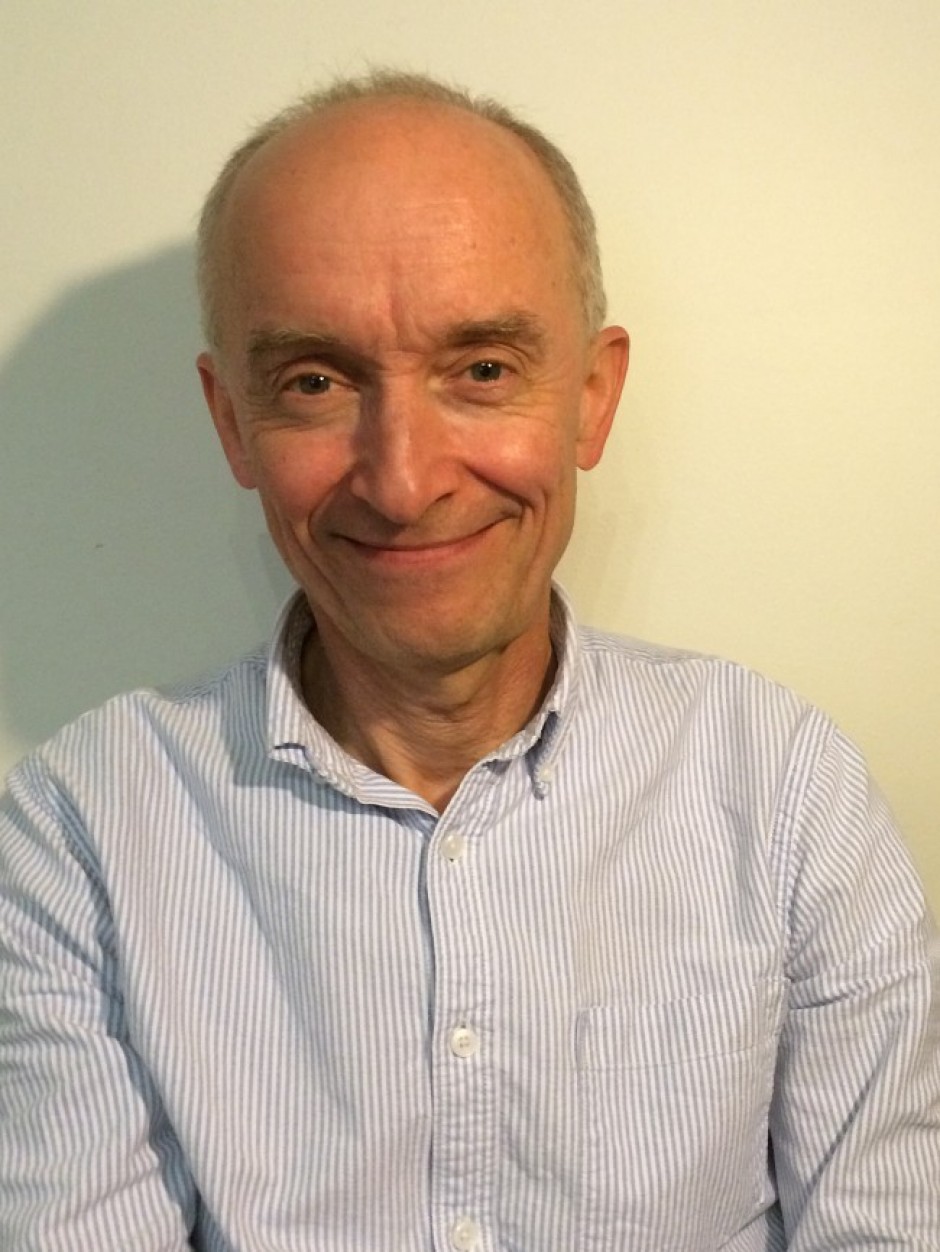
Professor Kristian Sommerfelt
Norway
Kristian Sommerfelt is a paediatrician. He completed his medical degree at the University of Bergen in 1981 and specialist in paediatrics in 1994. Dr degree in 1997 with the theme of premature children and later development. Since 1987, he has worked at the Children's Clinic (now the Children's and Adolescent Clinic) at Haukeland University Hospital, now as senior physician at the section for pediatric neurology and habilitation. Kristian has adjunct position as professor at the Department of Clinical Medicine 2, University of Bergen. He specialises in headaches, epilepsy and ME/CFS, but has broad experience in the entire field of child neurology. For the past 12 years, he has had a special interest in children and young people with ME/CFS, both directly with patient work and in research. He is particularly concerned with investigation, diagnosis and the transfer of knowledge to the first-line service and school. He has broad scientific experience with articles in international journals and authorship of chapters in several medical textbooks. He is a member of the European ME Research Group (EMERG) and European ME Clinicians Council (EMECC).
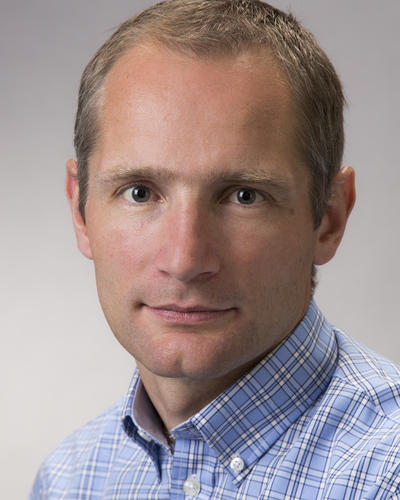
Institute for Biomedicine , Tronstad Lab, Bergen, Norway
Professor Karl Johan Tronstad
Norway
Prof. Tronstad completed his graduate studies in biochemistry at the University of Bergen (UiB) in 2002.
As postdoc at the Haukeland University Hospital, he studied bioactive compounds with the potential to modulate mitochondrial
functions in cancer cells. In 2005 he was recruited to the Department of Biomedicine, UiB, where he started his research group
to investigate metabolism and mitochondrial physiology. His laboratory seeks to better our understanding of how defective
mitochondrial homeostasis may disturb cell physiology, and how this may be involved in mechanisms of cancer and
Myalgic Encephalomyelitis/Chronic Fatigue Syndrome (ME/CFS).
The Tronstad Lab investigates cell metabolism and mitochondrial biology.
Specialisms:
Metabolism, Cell biology, Mitochondria, Biochemistry
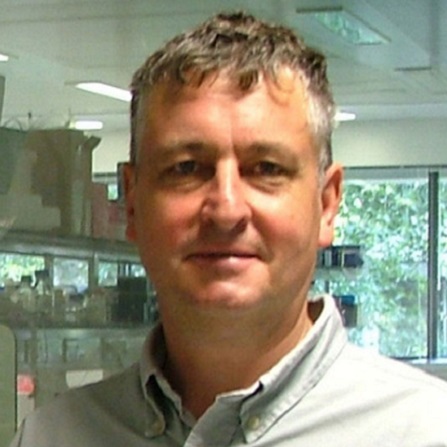
Professor Tom Wileman
USA
Tom Wileman took his first degree at the London School of Pharmacy, now part of University College. This was followed by a PhD at John Moore’s University Liverpool where he gained a keen interest in cell biology and immunology. A postdoctoral fellowship followed at Washington University in St Louis to study endocytosis and the macrophage mannose receptor with Philip Stahl. In 1986 he moved to the Dana Farber Cancer Institute at Harvard Medical School to work with Cox Terhorst cloning genes for the signaling complex of the T-cell antigen receptor. He was appointed to Assistant Professor at Harvard Medical School in 1991 and performed some of the first experiments on T-cell antigen receptor assembly and ER-stress related protein degradation. In 1994 he returned to the UK to the Institute for Animal Health (The Pirbright Institute, UK) as Head of Immunology to study how viruses such as foot and mouth disease virus and African swine fever virus use cellular organelles to facilitate replication and how this affects immune responses. In 2005 he moved to UEA where his lab studies how viruses activate autophagy during cell entry and replication.

Dr Wenzhong Xiao
USA
Dr. Xiao is assistant professor of Bioinformatics at Harvard Medical School and director of the Inflammation & Metabolism Computational Center at Massachusetts General Hospital. He also leads a Computational Genomics Group at Stanford Genome Technology Center. He holds a doctorate degree in chemistry and structural biology from University of California at Berkeley and a master’s degree in statistics
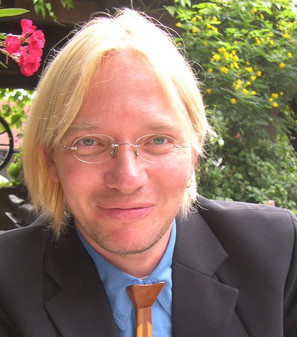
Dr Lutz Schomburg
Germany
Prof. Dr. Lutz Schomburg received his training in biochemistry at the University of Hanover, Germany. He completed internships at the Max Planck Institute for Biochemistry in Munich, the Waite Agricultural Research Institute, Adelaide, Australia, and King's College London, UK. He worked at the Max Planck Institute for Experimental Endocrinology in Hannover, Germany, and received his PhD in 1994. As a postdoctoral fellow, he worked at Brigham and Women's Hospital, Harvard Medical School, Boston, USA, with Prof. William W. Chin and at Julius Maximilians University, Würzburg, Germany, with Prof. Josef Köhrle. He is currently President of the International Society for Selenium Research and Deputy Director of the Institute for Experimental Endocrinology at Charité Universitätsmedizin Berlin.

Associate Professor Julia Oh
USA
Postdoc, National Human Genome Research Institute, National Institutes of Health
Ph.D., Stanford University
B.A., Harvard University
Read more
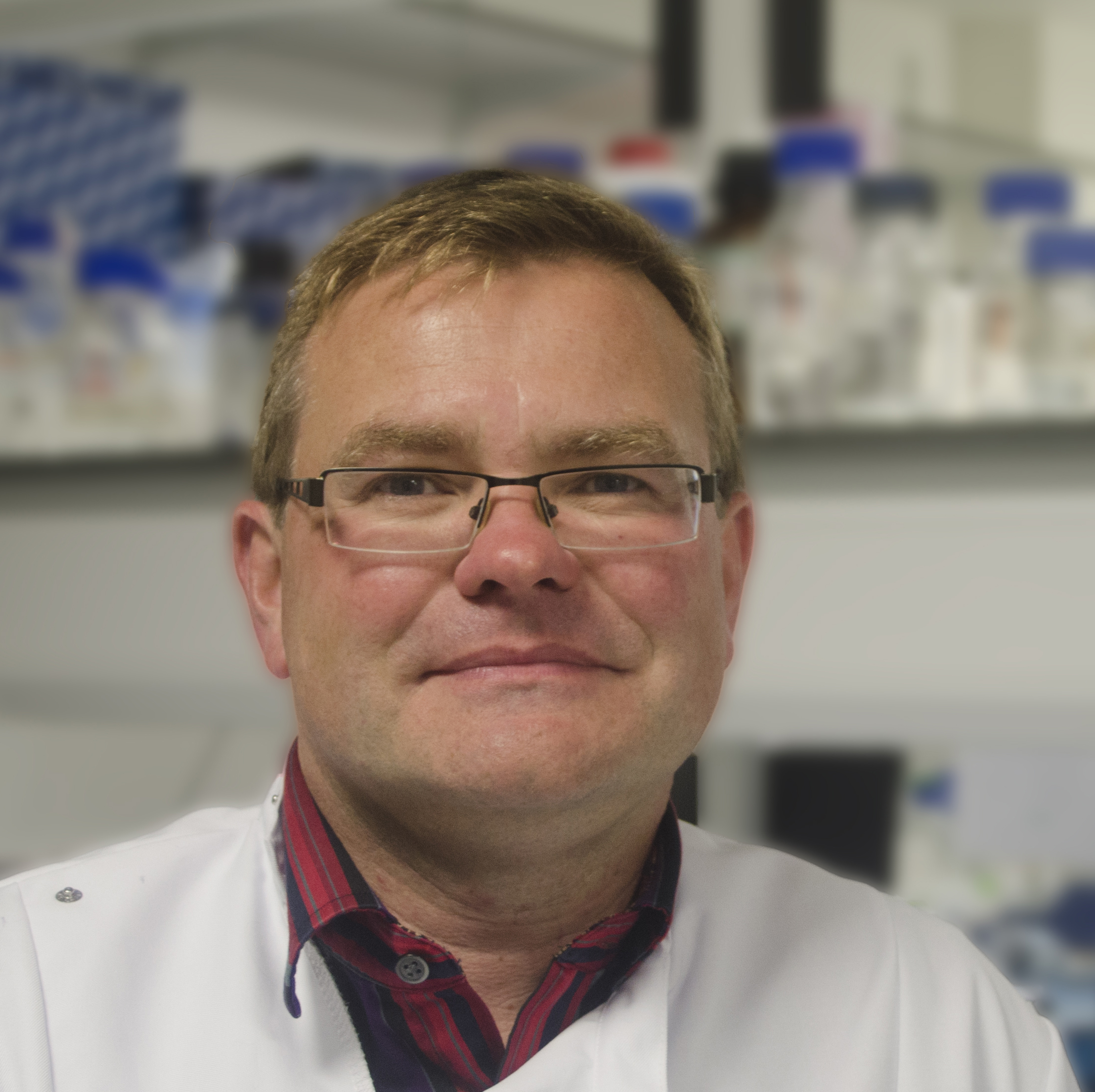
Professor James Stewart
UK
International renounded in the field of virus-host interactions he trained as a molecular biologist,
applying molecular techniques to study virus/host interactions, specifically the immune response.
A large part of his career has been spent studying pathogenesis and virus-host interactions, with a particular focus on the herpesvirus family.
Established the link between active EBV infection and idiopathic pulmonary fibrosis (IPF) and showed that this a consequence of the normal biology of this group of viruses.
With Tony Nash, developed murine gammaherpesvirus in mice as a means of studying authentic host-virus interactions, exploiting the power of virus reverse genetics and KO mouse technology.
More recently research has moved to focus on virus-host interactions in the respiratory tract, using other respiratory pathogens such as influenza A virus and RSV. Developed an integrative toolkit and pathway with which to do this using conventional and molecular techniques to analyse the course of virus infection combined with big data techniques and informatics to relate the function of viral determinants with host defence responses. The ultimate aim is to translate this into novel interventions and vaccines.

Dr Kiran Thapaliya
Australia
Research Fellow in the area of Neuroimaging with the National Centre for Neuroimmunology and Emerging Diseases (NCNED).
Main research interest lies in the development of medical imaging methods for the direct in vivo mapping of tissue microstructure in
Myalgic encephalomyelitis/chronic fatigue syndrome (ME/CFS) and Long COVID.
Kiran's research focuses on understanding how changes in tissue microstructure influence MRI signals and the
development of new neuroimaging methods to identify biomarkers for ME/CFS and Long COVID.
Read more

Professor Lubov Nathanson
USA
..
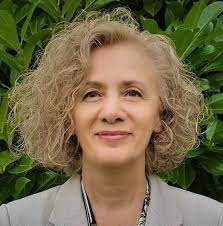
Professor Hatice Tankisi
Denmark
Department of Clinical Medicine - Department of Clinical Neurophysiology
Hatice Tankisi is a consultant in Clinical Neurophysiology at Aarhus University Hospital and professor at Aarhus University, Denmark. She is serving as the secretary and treasurer of ExCo Europe-Middle East-Africa Chapter, International Federation of Clinical Neurophysiology (EMEAC-IFCN) since 2018 and Co-chair of the Clinical Neurophysiology Panel, European Academy of Neurology (EAN) since 2020.
She was born and studied medicine and trained as a neurologist in Turkey and then moved to Denmark in 2000, trained as a neurophysiologist and did her PhD in Denmark. Her main research interests are peripheral nerve, muscle and cortical excitability tests with threshold tracking and motor unit number estimation methods for diagnosis and understanding disease pathophysiology in neurological disorders particularly ALS and polyneuropathy. She has more than 90 peer-reviewed papers and 6 book chapters. Hatice Tankisi has been a member of the European Multicenter EMG network, ESTEEM since 2000 and is serving as the leader of ESTEEM since 2020. She is also a member of the International Diabetic Neuropathy Consortium (IDNC), multicentre IMI-PainCare project and the QTMS Research Group.
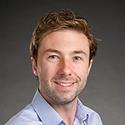
Assistant Professor Bradlee Heckman
Denmark
University of South Florida, Health, Neuroscience Institute, Byrd Alzheimer's Center, USA
Bradlee L. Heckmann is an American biologist and neuroimmunologist who is currently an investigator at the Byrd Alzheimer's Center and USF
Health Neuroscience Institute and assistant professor in molecular medicine at the USF Health Morsani College of Medicine. Prior to his faculty
appointment, Heckmann held the John H. Sununu Endowed Fellowship[1] in immunology at St. Jude Children's Research Hospital. Heckmann's research is
focused on understanding the regulation of inflammatory processes in the central nervous system, with particular emphasis on neurodegenerative diseases
including Alzheimer's Disease[2] and the role of the autophagy machinery in this setting. #8362D5
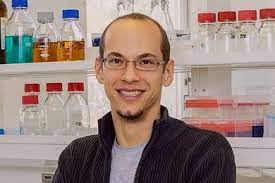
Dr Thomas Vogl
Austria
Group Leader, Medical University of Vienna
Thomas Vogl studied Molecular Microbiology at the University of Graz and completed his PhD in "Molecular Biomedical Sciences and Biotechnology’" at Graz University of Technology. International placements have taken him to Queensland University of Technology (Australia) and the Weizman Institute of Science (Israel). Most recently, he worked as a senior postdoc at the Diagnostics & Research Center for Molecular BioMedicine at MedUni Graz. Since August 2022, he has been leading a research group at the Center for Cancer Research at MedUni Vienna.
Dr. Thomas Vogl and his multidisciplinary team of molecular biologists, biochemists, and bioinformaticians are investigating which microbial and tumor factors are crucial for successful cancer therapies. Dr. Vogl's expertise lies in the combination of biological experiments with computer-assisted analyses. In this context, the immune system is analyzed in the laboratory using blood samples from patients alongside novel high-throughput methods.
Professor Hatice Tankisi
Denmark
Department of Clinical Medicine - Department of Clinical Neurophysiology
Hatice Tankisi is a consultant in Clinical Neurophysiology at Aarhus University Hospital and professor at Aarhus University, Denmark. She is serving as the secretary and treasurer of ExCo Europe-Middle East-Africa Chapter, International Federation of Clinical Neurophysiology (EMEAC-IFCN) since 2018 and Co-chair of the Clinical Neurophysiology Panel, European Academy of Neurology (EAN) since 2020.
She was born and studied medicine and trained as a neurologist in Turkey and then moved to Denmark in 2000, trained as a neurophysiologist and did her PhD in Denmark. Her main research interests are peripheral nerve, muscle and cortical excitability tests with threshold tracking and motor unit number estimation methods for diagnosis and understanding disease pathophysiology in neurological disorders particularly ALS and polyneuropathy. She has more than 90 peer-reviewed papers and 6 book chapters. Hatice Tankisi has been a member of the European Multicenter EMG network, ESTEEM since 2000 and is serving as the leader of ESTEEM since 2020. She is also a member of the International Diabetic Neuropathy Consortium (IDNC), multicentre IMI-PainCare project and the QTMS Research Group.
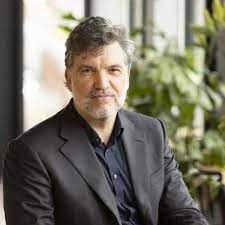
Associate Professor Jos Bosch
Netherlands
In 2012 he was appointed associate professor in the Department of Psychology, section Clinical Psychology.
His research investigates the psychobiology of medical disorders, with the aim to understand and mitigate the impact of disease.
His dual expertise in psychology and biology allows him to approach this topic in a genuinely interdisciplinary manner, by integrating methods and concepts from both fields, and apply these to experimental laboratory studies, clinical investigations, and epidemiological analyses. More recently hsi work has expanded to include Data Science and Artificial Intelligence (AI) as a source of novel approaches to the analysis and modification of human biology and behaviour. The latter program of research is funded by two H2020 consortium grants, of which he isa lead and a coordinator, and involves intensive collaborations with groups accross continental Europe, the UK, and the US.
Since 2019 he became Associate Editor of Health Psychology Review, having previously acted as associate/senior editor for Brain, Behavior & Immunity (2011-2014), Psychological Bulletin (2010-2013), and Health Psychology (2010-2015).
In 2018 he was appointed Program Leader of the AMC/VUmc research institute ‘Amsterdam Public Health' (APH), Divsion of Mental Health (https://www.amsterdamumc.org/research/institutes/amsterdam-public-health.htm). In 2020 I was reappointed for 2 more years.
In 2023 Jos was awarded a grant of more than seven million euros to commence new biomedical research into ME/CFS.
Further reading:
Amsterdam UMC leads international consortium in the search for treatment for ME/CFS
Presenter to be announced
Details will be announced shortly.

Presenter to be confirmed
Details will be announced shortly.

Welcome to BRMEC10
Day 1 of the Colloquium.
BRMEC10 is the tenth Biomedical Research into ME Colloquium organised by the charity.
All delegates to BRMEC10 will have received instructions on joining the meeting via email beforehand including information
about the topics under discussion.
Each day will begin promptly at the published times.

Status Review
The Colloquium begins with an overview of the current status of research and has presentations from different areas.
Speakers are to be announced.
Epidemiology of ME (and Covid)

This section will look at the epidemiological evidence related to ME as well as reviewing the recent accruement of knowledge from COVID-19 research.
Hypotheses discussed include historical evidence for infectious agents including environmental and endogenous viruses and
bacteria being associated with the onset and “outbreaks” of ME/CFS
and
in relation to COVID-19, genetically susceptible individuals are at
increased risk of developing ME/CFS after SARS-CoV-2 infection resulting in an
increase of symptoms fulfilling the diagnostic criteria of ME/CFS amongst infected
individuals.
Speakers will represent these hypotheses which will then be discussed by delegates.
Professor Markku Partinen
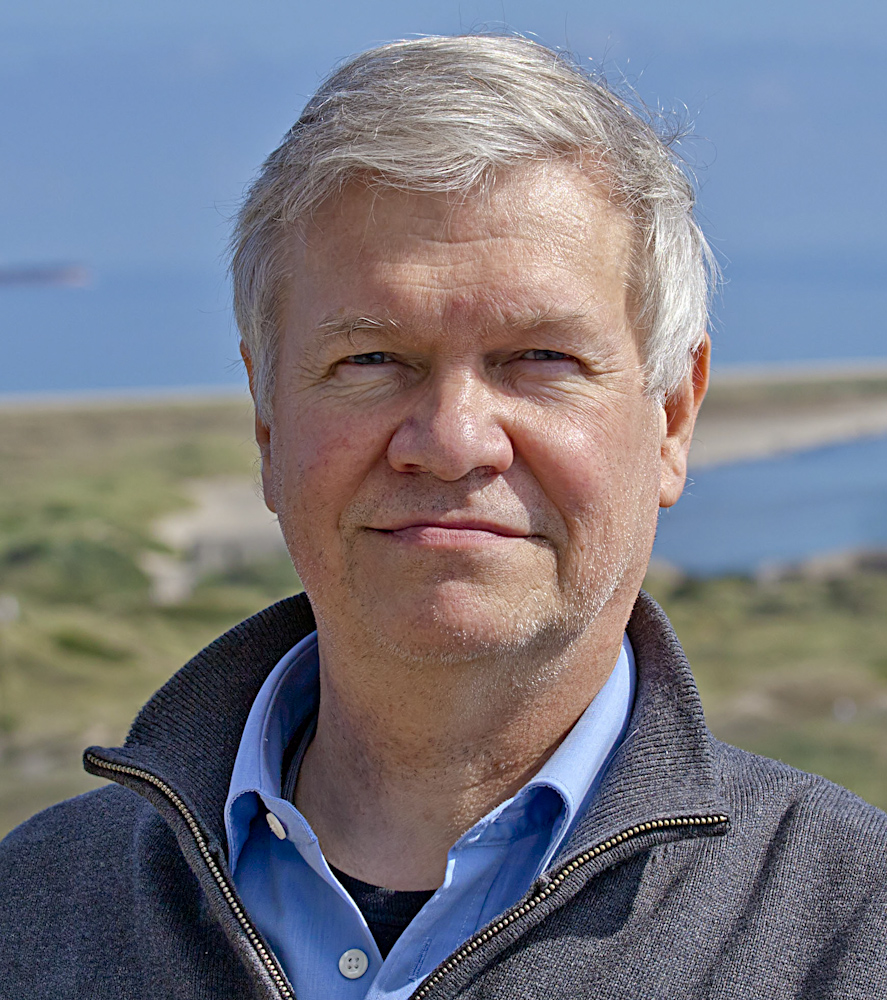
Professor of Medicine, University of Helsinki, Finland
Professor Partinen is a neurologist and an internationally well-known opinion leader and expert in sleep research and sleep medicine.
He is currently working as Research Director of the Helsinki Sleep Clinic, Vitalmed Research Centre.
He works also at Haartman Institute, University of Helsinki, and at Akademiska Sjukhuset, University of Uppsala.
His expertise covers sleeping, nutrition (what to eat), and other aspects of modern life and well-being.
His current research projects include narcolepsy, Parkinson's disease, insomnia, traffic accidents and daytime sleepiness.
He has published more than 250 articles in peer-reviewed international journals, several books and chapters.
He was recently (Now 2015) elected as the new President of the Finnish Parkinson Association. Professor Partinen is also a member of the European ME Research Group (EMERG) and European ME Clinicians Council (EMECC).
Professor Friðbjörn Sigurðsson
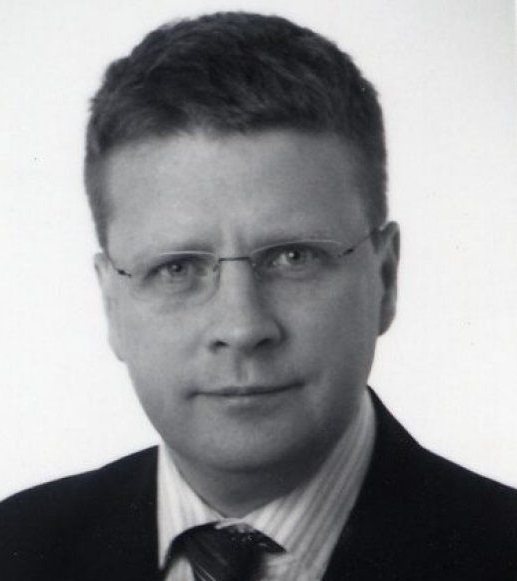
Dr Friðbjörn Sigurdsson is Program Director Internal Medicine, Landspitali University Hospital in Rejkjavik, Iceland.Friðbjörn
CURRENT POSITIONS
- Program Director Internal Medicine, Landspitali University Hospital (since October 1 2013)
- Attending Medical Oncology, Landspitali University Hospital (since April 1 2001)
- Attending Hematology, Landspitali University Hospital (part time since May 2009)
- Medical Oncology and Hematology, Akureyri Hospital (part time since June 2010)
PREVIOUS POSITIONS
- Chief Internal Medicine, Landspitali University Hospital
- Chief Medical Council Landspitali University Hospital, Iceland
- Attending, Oncology, Landspitali Hospital, Reykjavik, Iceland
- Attending, Internal Medicine, Reykjavik City Hospital, Iceland
- Læknasetrið – private practice, Reykjavik, Iceland
- Chief Internal Medicine, Neskaupstadur Hospital, Iceland
- Chief Internal Medicine Vestman Islands Hospital, Iceland
- Stykkishólmur, heilsugæsla og sjúkrahús.
Professor Simon Carding
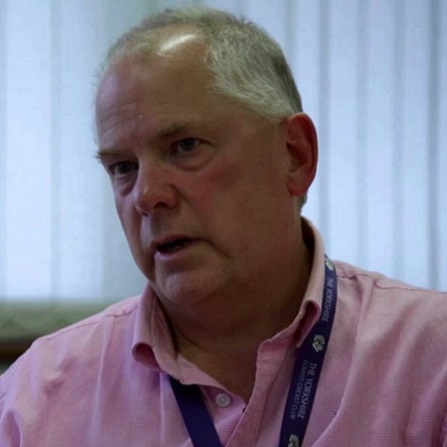
Professor Simon Carding Research Leader, Quadram Institute Bioscience, Norwich Research Park, UK
Upon completing postgraduate work at the Medical Research Council’s Clinical Research Centre in Harrow, Professor Carding “emigrated” to the USA to take up a postdoctoral position at New York University School of Medicine, and then at Yale University as a Howard Hughes Fellow in the Immunobiology Group at Yale University with Profs Kim Bottomly and Charlie Janeway Jr. While at Yale an interest in gamma-delta (γδ) T cells was acquired working closely with Adrian Hayday on molecular genetics and then with Prof. Peter Doherty to establish their role in (viral) infectious disease.
He left Yale after five years to take up a faculty position at the University of Pennsylvania in Philadelphia where he developed a research interest in mucosal and GI-tract immunology, performing studies in germfree mice with Prof John Cebra that helped establish the role of gut microbes in the aetiology of inflammatory bowel disease (IBD).
After 15 years in the USA, he returned to the UK to take up the Chair in Molecular Immunology at the University of Leeds where he established a new research programme on commensal gut bacteria and Bacteroides genetics leading to the development of a Bacteroides drug delivery platform that is being used for developing new interventions for IBD and for mucosal vaccination.
In 2008 he was recruited by UEA and IFR to develop a gut research programme, taking up the Chair of Mucosal Immunology at UEA-MED and the position of head of the Gut Biology Research Programme at IFR, which later became part of the Gut Health and Food Safety (GHFS) Programme.
GHFS research covers a broad area of gut biology including epithelial cell physiology, mucus and glycobiology, mucosal immunology, commensal microbiology, foodborne bacterial pathogens, and mathematical modelling and bioinformatics. The success of this programme has led to the establishment of the Gut Microbes and Health research programme that is integral to the research agenda of The Quadram Institute.
-
References
Professor Leonard Jason, DePaul University, Chicago,USA
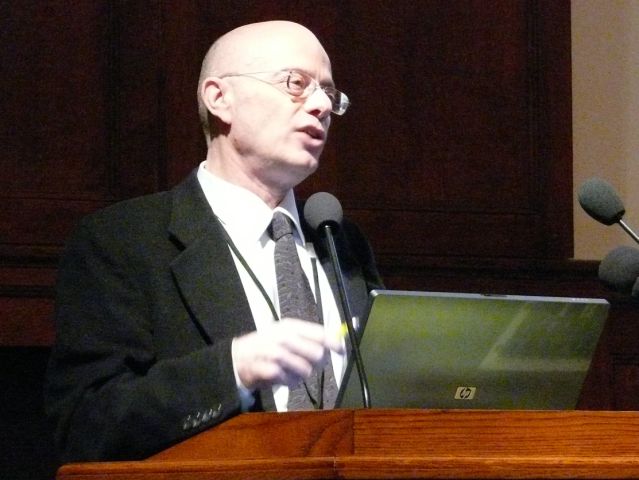
Professor Leonard Jason has been among the most prolific of all ME/CFS researchers. For more than a decade, Dr Jason and his team at DePaul University’s
Centre for Community Research in Chicago have worked to define the scope and impact of ME/CFS worldwide. Dr Jason
has been a key driver of ME/CFS research since 1991, and is
uniquely positioned to support collaboration between ME/CFS researchers, patients, and government decision makers. His studies have shown
that the direct and indirect costs of ME/CFS amount to $20 billion in the U.S. each year, and more than 1 million people suffer from ME/CFS as
opposed to the estimated 20,000 people originally reported by the CDC (Centers for Disease Control and Prevention).
Researchgate Professor Leonard Jason
Dr Hilma Hólm, Head of Cardiovascular, DeCode Genetics, Reykjavik, Iceland
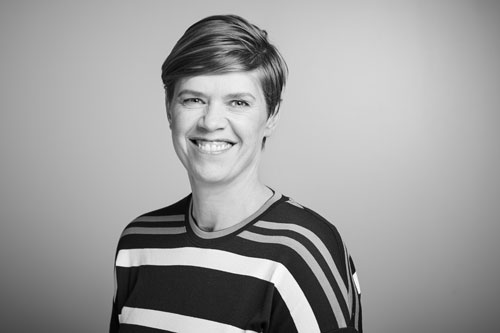
Hilma received her medical degree from the University of Iceland in 2000.
She completed her internal medicine training at Baylor College of Medicine in Houston, and her clinical cardiology training at Emory University in Atlanta.
She then pursued research training in cardiovascular genetics at deCODE in Iceland.
Hilma has been on faculty at deCODE since 2008 and currently leads the company´s cardiovascular effort.
She is actively involved in a wide range of cardiovascular research, including lipids and atherosclerosis, conduction and arrhythmias, congenital heart disesae and
heart failure.
Hilma also completed training in clinical echocardiology at Mayo Clinic in Rochester, Minnesota, in 2014, and is actively involved with patient care at Landspitalinn,
the National University Hospital.
Source: https://www.decode.com/management/
ANS and Autoimmunity

Hypothesis: Autonomic dysfunction and autoantibodies
Dr Jesper Mehlsen

Research Director, Coordinating Research Centre, Bispebjerg and Frederiksberg Hospital, Denmark
Co-chair European ME Research Group
Expertise
Autonomic nervous system; Heart rate and blood pressure control; Cardiovascular physiology and pathophysiology;
HPV vaccines and -complications
Main research areas
Methods for the study of autonomic cardiovascular control; Mathematical modelling of cardiovascular control;
Autoimmune response to vaccination; Mathematical modeling of the neuroinflammatory reflex
Current research
Mathematical analysis of hemodynamic adaptations to the upright posture.
Mathematical analysis of hemodynamic response to Valsalva manoeuvre
Dynamic T-wave alterations and the autonomic nervous system
Mathematical analysis of cytokine response to LPS in humans
Autoimmunity in patients with possible side effects to HPV vaccination
Mitochondrial Dysfunction

Hypothesis: Mitochondrial metabolic dysfunction in ME
During this session, we will discuss potential causes of this mitochondrial metabolic dysfunction in ME, how it may relate to PEM and fatigue, and if attempts to revert it by pharmaceutical and diet manipulation will reverse or worsen ME symptom burden.
Associate Professor Rikke Katrine Jentoft Olsen
Research Unit for Molecular Medicine, Department of Clinical Medicine, Aarhus University, Denmark
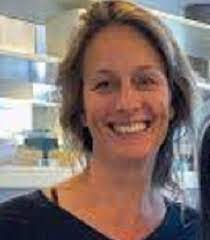
Our research group has a longstanding interest in inborn errors of mitochondrial metabolism with special focus on fatty acid oxidation disorders. We integrate genetic diagnostics of affected families with research into cell pathological mechanisms and novel treatment modalities in the form of mitochondrial vitamins/co-factors and anaplerotic compounds for the tricarboxylic acid cycle. In recent years, we have initiated research programs to understand the role that mitochondria may play in Myalgic Encephalomyelitis/Chronic Fatigue Syndrome (ME/CFS).
Besides science, Rikke KJ Olsen is an active member of the Neonatal Screening Program for inborn errors of metabolism in Denmark and board member of international scientific organisations within fatty acid oxidation disorders and ME/CFS.

University of Oslo and EMERG
Professor Ola Didrik Saugstad
Norway
Ola Didrik Saugstad is a Norwegian pediatrician and neonatologist, who is internationally recognized for his research on resuscitation of newborn children. Since 1991, he has been Professor of Pediatrics at the University of Oslo and Director of the Department of Pediatric Research at the National Hospital.

Full Chair Professor in Analytical Chemistry and Neurochemistry at the Department of Chemistry, Uppsala University, Sweden
Professor Jonas Bergquist
Sweden
Professor Begquist has a background as MD, Associate Professor of Clinical Neuroscience , Sahlgrenska University Hospital and the University of Gothenburg. Since 1999 , he has been a researcher in Uppsala, Sweden, and in 2005 was appointed professor of analytical chemistry and neurochemistry at the Department of Chemistry - BMC , Uppsala University. From 2011 he worked also as an adjunct professor of pathology at the University of Utah, Salt Lake City, Utah, USA.
Professor Karl Johan Tronstad
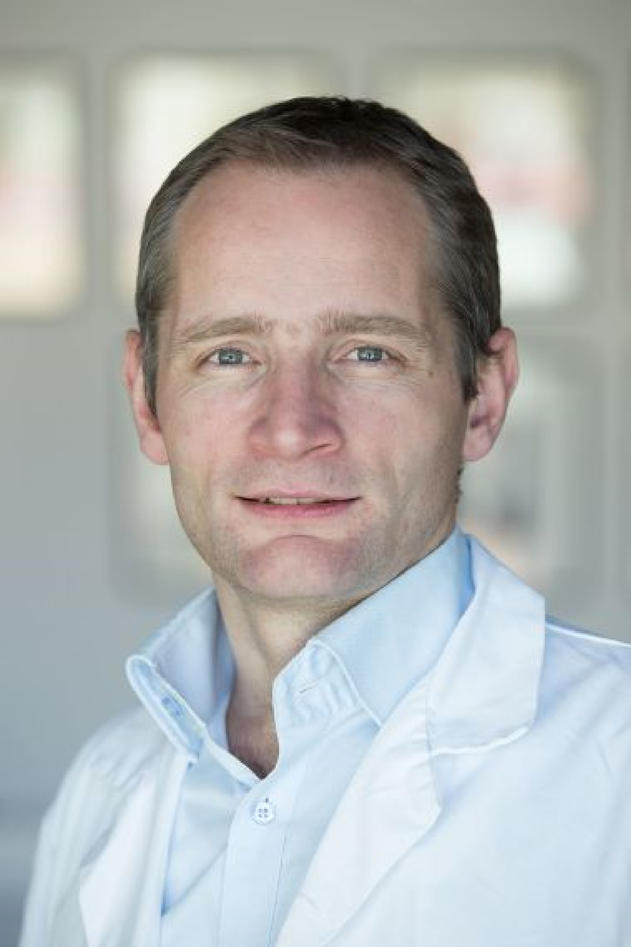
Professor Tronstad completed his graduate studies in biochemistry at the University of Bergen (UiB) in 2002. As postdoc at the Haukeland University Hospital, he studied bioactive compounds with the potential to modulate mitochondrial functions in cancer cells. In 2005 he was recruited to the Department of Biomedicine, UiB, where he started his research group to investigate metabolism and mitochondrial physiology. His laboratory seeks to better our understanding of how defective mitochondrial homeostasis may disturb cell physiology, and how this may be involved in mechanisms of cancer and Myalgic Encephalomyelitis/Chronic Fatigue Syndrome (ME/CFS).
Karl was involved with the recent paper to come from Bergen - Journal of Clinical Investigation Insight.
The Tronstad Lab investigates cell metabolism and mitochondrial biology.
Specialisms:
Metabolism, Cell biology, Mitochondria, Biochemistry
-
References
Dr. Bhupesh K Prusty, Principal Investigator, Institute for Virology and Immunobiology, Würzburg, Germany

Dr. Bhupesh Prusty is Group Leader in the Department of Microbiology at the University of Würzburg in Germany
Dr. Bhupesh Prusty finished his Doctoral studies in New Delhi, India and afterwards started his professional scientific life in Germany in 2006 with Prof. Harald zur Hausen.
Afterwards he started his own research group in 2014 and since then he has been involved with herpesvirus research.
As an independent researcher, he has made significant discoveries to understand molecular mechanisms of HHV-6/HHV-7 latency and reactivation. His major achievements
include identifying molecular mechanism of HHV-6 reactivation by telomeric-circle formation, the finding of HHV-6A infection in neuronal Purkinje cells of
bipolar patients and the characterization of mitochondrial dysfunction in ME/CFS.
His current research interest involves studying molecular biology of HHV-6/HHV-7 encoded small non-coding RNAs and their potential role in human diseases.
Professor Tom Wileman, Quadram Institute, Norwich,UK
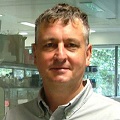
Career
2007- present Director, Biomedical Research Centre, University of East Anglia
1997-2005 Head of Department of Immunology and Pathology, Institute for Animal Health, Pirbright Laboratory, Woking, Surrey.
1994-1997 Head, Virus Cell Biology Group, Institute for Animal Health, Pirbright Laboratory, Woking, Surrey.
1991-1996 Assistant Professor, Department of Medicine, Harvard Medical School, Boston USA.
1991 - 1994 Assistant Professor, Division of Immunology, Beth Israel Hospital, Harvard Medical School, Boston, MA.
1988-1992 Claudia Adam's Barr Investigator in Cancer Research, Fellow of the Medical Foundation of the Charles King Trust and Basil O'Connor Scholar Award of the March of Dimes Research Foundation, Dept Molecular Immunology, Dana Farber Cancer Institute, Harvard Medical School
1982-1988 BBSRC NATO Fellow and Fellow of the Parker Francis Pulmonary Research Foundation. Department of Cell Biology, Washington University Medical School, St Louis.
The Wileman group at the Quadram Institute studies how viruses activate autophagy during cell entry and replication.
Dr Amolak Bansal

Consultant Immunologist, Spire Hospitals, Surrey, UK
Previously, Consultant in Immunology/Allergy and CFS/ME, Department of Immunology and Allergy, St Helier Hospital, Carshalton, Surrey.
Professor Aletta D. Kraneveld
Chair Interdisciplinary Translational Pharmacology| Division of Pharmacology | Department of Pharmaceutical Sciences | Utrecht Institute for Pharmaceutical Sciences, Utrecht University , Netherlands
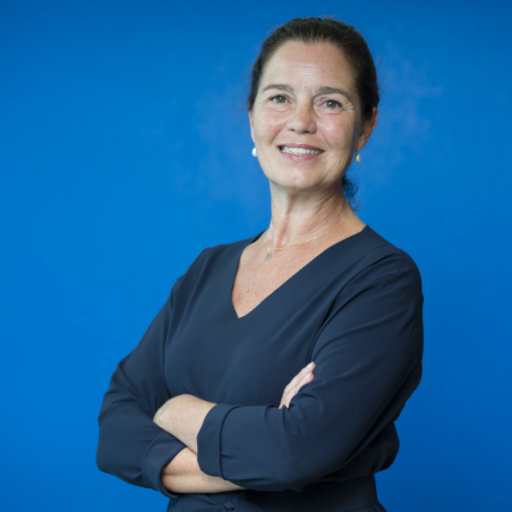
Aletta Kraneveld, full professor Interdisciplinary Translational Pharmacology at the Faculty of Science and the faculty of Veterinary Medicine of the Utrecht University
has published over 100 papers (H-index: 35).
Besides science, she is an active member of several (advisory) boards of national and international scientific organisations.
The Kraneveld group is focused on research into the role of the gut-immune-brain-axis in neurodevelopmental and neurodegenerative disorders
including the interaction of microbiota and their fermentation products with the immune and nervous system.
Professor Elisa Oltra, Head of the Genetic Expression and Immunity group of the Faculty of Medicine at the Catholic University of Valencia, Spain
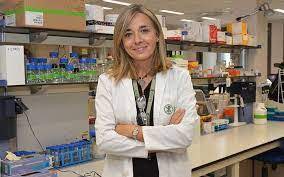
Elisa Oltra currently works at the Catholic University of Valencia, Valencia, Spain. Elisa does research in Cancer Research, Cell Biology and Genetics.
Professor Branislav Milovanović, University Clinical Center Bezanijska Kosa, Department of Cardiology,Neurocardiological laboratory, Belgrade, Serbia
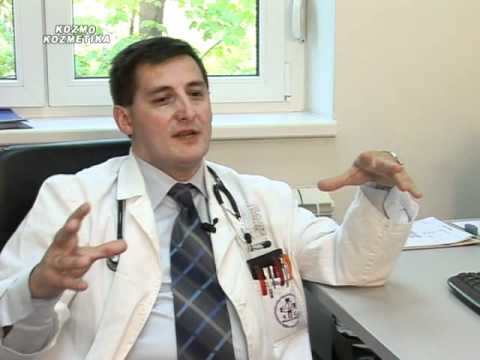
Prof. Dr. Branislav Milovanović is a specialist in internal medicine - a cardiologist from Belgrade. He is employed at the Bežanijska Kosa Clinical Hospital, in the position of the head of the Neurocardiology Laboratory, of which he is also the founder. He is a professor of cardiology at the Department of Internal Medicine at the Faculty of Medicine in Belgrade. He studied at some of the world's best cardiology centers, in Germany, Great Britain, Italy and America.
In Serbia, he is one of the first to deal with neurocardiology , a new scientific branch that studies the relationship between the nervous and cardiovascular systems. He introduced new diagnostic methods: nonlinear cardiology, short-term and long-term analysis of RR variability with spectral analysis, cardiovascular reflex tests with spectral analysis, and real time continuous measurement of blood pressure.
Prof. Dr. Branislav Milovanović founded the Section of the Serbian Medical Association for the Autonomic Nervous System, as well as the Association for Neurocardiology of Serbia, which is the fourth such association in the world.
He is the author of a large number of scientific papers published in domestic and foreign journals of importance, as well as one monograph. He is the organizer of numerous professional gatherings, through which he brought some of the world's biggest names in cardiology to Serbia. He often visits as a lecturer by invitation at foreign congresses. During his career, he received numerous awards, including the American Hypertension Association Award.
PRESENT POSITIONS
- • Head of Neurocardiological laboratory,CHC B.Kosa
- • Professor of Internal medicine and Cardiology,Medical faculty,University in Belgrade,Serbia
- • Professor of Internal medicine,Alma Mater Europea,University in Salzburg,Austria,European Center Maribor,Slovenia
- • Director of Internal Clinic University Clinical Center Bezanijska Kosa
TRAINING AND EDUCATION
- • Postdoctoral training
- • KreisKrankenhaus Ebersberg, Muenchen, Cardiology and Internal department
- • Laboratory for nonlinear dinamic, Klinikum recht der Isar,Department of Cardiology, University of Muenchen, September 1996 and 1997
- • Neurovascular Unit,St Mary`s Hospital,Imperial College,
- • Institute for Neurology,UCL,London ( after getting of Wellcome Trust Grant);25.1.1999.-25.2.1999.
- • RUSH University of Chicago,Department of Cardiology ,20.2.2000-20.3.2000.
- • Department of Cardiology, Instituto Auxologico Italiano, University of Milano, Ospedale San Luca, September 2001
- • Medical Licensure
- • 1987.Doctor in medicine,(MD).University of Belgrade
- • Residency
- • From 19.4.1990 to 20.5.1994.Specialists examination passed with an excellent grade at the school of medicine in Belgrade
- • M.Sci.
- • 1993:University of Belgrade
- • Doctoral degrees
- • 1994: Doctor of medical science,(PhD)
- • Syncope
- • All aspects of clinical investigation of autonomic nervous system in different diseases Noninvasive, electrocardiology, Chaos theory, Personalized medicine
- • Nano medicine
- • Placebo effect
- • Neurocardiology
Professor Kristian Sommerfelt, Paediatric Neurologist at Haukeland University hospital in Bergen, Norway
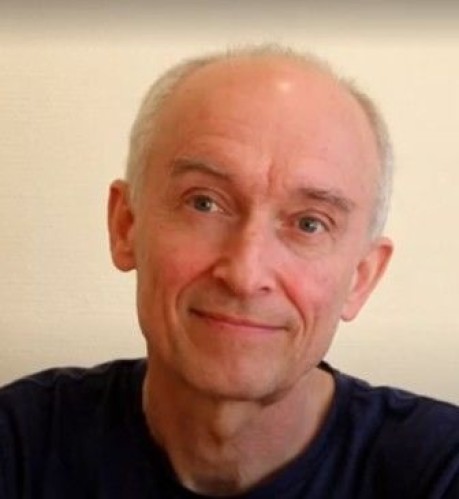
Professor Kristian Sommerfelt is a paediatric neurologist at Haukeland University hospital in Bergen, NorwayKristian Sommerfelt
Professor Sommerfelt wrote the national guidelines (2019) for diagnosis, treatment and follow-up of ME/CFS children/ young people for the website NEL (Norsk Elektronisk Legehåndbok) - which is a web-based methods used the most by general practitioner doctors and also used extensively in hospitals. Over the last eight years he has given lectures and presentations at courses and conferences for health professionals and others in addition to teaching medical students.
-
References
Professor Maureen Hanson, Cornell University, USA

Maureen R. Hanson is Liberty Hyde Bailey Professor in the Department of Molecular Biology & Genetics. She received a B.S. degree at Duke University and a Ph.D. in Cell and Developmental Biology from Harvard University. After completing an NIH postdoctoral fellowship at Harvard, she joined the faculty of the Biology Department at University of Virginia. She moved to Cornell as Associate Professor and was promoted to Professor in 1991. She is presently a member of the graduate Fields of Genetics and Development, Plant Biology, and Biochemistry, Molecular, and Cell Biology. She has previously served as Associate Director of the Cornell Biotechnology Program and Director of the Cornell Plant Science Center. She is currently Director for the Center for Enervating Neuroimmune Disease.
-
References
Dr Linn Skjevling

Doctor and research fellow
Research and Education Unit
Medical department
UNN Harstad
Norway
SUMMARY - DAY 1

Day 1 summary

Welcome to BRMEC10
Day 2 of the Colloquium.

OVERVIEW of DAY 2
To be confirmed
To be confirmed
IMMUNOGENETICS

Hypothesis -Immune and Immune genetic factors drive the development and progression of ME/CFS
HOST-MICROBE INTERACTIONS

Hypothesis: Host microbe interactions that affect the gut brain axis can predispose to ME/CFS
THERAPEUTICS (CURRENT/FUTURE)

Hypothesis: Therapeutic strategies should target the triggering and subsequent signalling events that cause the hallmark clinical symptoms of ME.
SUMMARY - DAY 2

Day 2 summary
Research tools for ME/CFS-related data and biospecimens
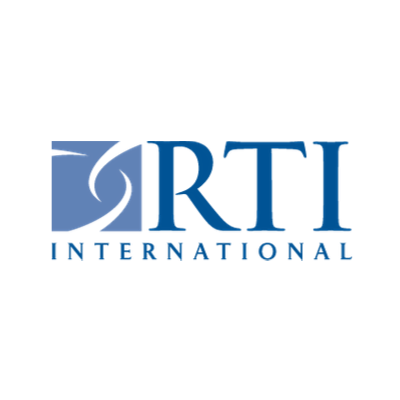
RTI International
Two new research tools developed by RTI International, the Data Management and Coordinating Center for the NIH-funded
ME/CFS Collaborative Research Centers (CRCs) Network, are now available to help advance ME/CFS research by allowing researchers
to access and share data and biospecimens.
An online data sharing platform that allows researchers to discover, share, and access data from multi-omic studies.
The platform was initially developed to support the ME/CFS Network CRCs that employ a variety of research methods
(e.g., microbiome screens, RNA sequencing, mitochondrial assays,
metabolomic assays) to identify potential biomarkers and study the underlying cause(s) of ME/CFS.
mapMECFS allows researchers to search the contents of data sets across multiple studies,
quickly compare results for specific molecules or markers of interest, and download relevant data to be used for exploration or validation studies.
Additionally, mapMECFS encourages and
facilitates sharing of new data by capturing key study metadata to make results easier to find.
An online, interactive search tool that allows researchers to query and request available biospecimens (e.g., DNA, RNA, urine, plasma, and peripheral blood mononuclear cells) based on specific demographic and clinical characteristics. The initial cohort, the Chronic Fatigue Initiative, was a research study supported by the Hutchins Family Foundation. Biospecimens and associated data were collected from 201 individuals with ME/CFS and 200 matched controls. The biospecimens are housed at the NINDS’ biomarker repository at Indiana University, and the data are hosted by RTI International. Investigators may also request access to just the clinical data for analysis. Additional cohorts’ biospecimens and datasets will be available in the future.
Open Discussion

this section is open to all delegates to discuss the preceding presentations
To be announced

To be announced
To be confirmed

To be confirmed
Dr Aimée Parker, Research Associate, Quadram Institute Bioscience, Norwich, UK
Dr Stefano Romano, Quadram Institute Bioscience, Norwich, UK
Assistant Professor Bradlee Heckmann, University of South Florida, Health, Neuroscience Institute, Byrd Alzheimer's Center, USA

Bradlee L. Heckmann is an American biologist and neuroimmunologist who is currently an investigator at the Byrd Alzheimer's Center and USF Health Neuroscience Institute and assistant professor in molecular medicine at the USF Health Morsani College of Medicine. Prior to his faculty appointment, Heckmann held the John H. Sununu Endowed Fellowship[1] in immunology at St. Jude Children's Research Hospital. Heckmann's research is focused on understanding the regulation of inflammatory processes in the central nervous system, with particular emphasis on neurodegenerative diseases including Alzheimer's Disease[2] and the role of the autophagy machinery in this setting. Source: Wikipedia
Dr. Gerd Wallukat, UMax-Delbrück-Centrum für Molekulare Medizin, Berlin, Germany
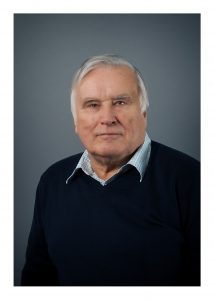
Dr. Wallukat led the research team that discovered the role of autoantibodies in dilated cardiomyopathy. He has been instrumental in investigating the role and function of autoantibodies in heart disease and other conditions at the Max-Delbrück-Center of Molecular Medicine in Berlin.
Dr. Wallukat also co-founded Affina Immuntechnik GmbH to to develop an adsorber for the new therapeutic option of immunoadsorption.
He is currently researching new ways to neutralize pathogenic autoantibodies without immunoadsorption.
Dr. Wallukat studied biology in Berlin and Leipzig and began his scientific work at the Institute of Cardiovascular Research of the Academy of Sciences with Prof. A. Wollenberger. After the unification of Germany he worked as head of a working group at the Max Delbrück Center of Molecular Medicine examining the immunology of cardiovascular diseases.
source:https://berlincures.de/the-team
Dr Avindra Nath, Clinical Director / Senior Investigator, Section of Infections of the Nervous System, National Institute of Neurological Disorders and Stroke (NINDS), USA

Dr. Nath received his MD degree from Christian Medical College in India in 1981 and completed a residency in Neurology from University of Texas Health Science Center in Houston, followed by a fellowship in Multiple Sclerosis and Neurovirology at the same institution and then a fellowship in Neuro-AIDS at NINDS.
He held faculty positions at the University of Manitoba (1990-97) and the University of Kentucky (1997-02).
In 2002, he joined Johns Hopkins University as Professor of Neurology and Director of the Division of Neuroimmunology and Neurological Infections.
He joined NIH in 2011 as the Clinical Director of NINDS, the Director of the Translational Neuroscience Center and Chief of the Section of Infections of the Nervous System.
His research focuses on understanding the pathophysiology of retroviral infections of the nervous system and the development of new diagnostic and therapeutic approaches for these diseases.
source:https://irp.nih.gov/pi/avindra-nath
- Nath A. Neuroinfectious diseases: a crisis in neurology and a call for action. JAMA Neurol. 2015;72(2):143-4.
- Uzasci L, Auh S, Cotter RJ, Nath A. Mass spectrometric phosphoproteome analysis of HIV-infected brain reveals novel phosphorylation sites and differential phosphorylation patterns. Proteomics Clin Appl. 2016;10(2):126-35.
- Li GH, Anderson C, Jaeger L, Do T, Major EO, Nath A. Cell-to-cell contact facilitates HIV transmission from lymphocytes to astrocytes via CXCR4. AIDS. 2015;29(7):755-66.
- Johnson TP, Patel K, Johnson KR, Maric D, Calabresi PA, Hasbun R, Nath A. Induction of IL-17 and nonclassical T-cell activation by HIV-Tat protein. Proc Natl Acad Sci U S A. 2013;110(33):13588-93.
- Douville RN, Nath A. Human endogenous retroviruses and the nervous system. Handb Clin Neurol. 2014;123:465-85.
- Long-Haul COVID
Dr. Brian Walitt, Medical Officer, Symptom Management Branch, Division of Intramural Research, National Institute of Nursing Research, USA

Dr. Brian Walitt’s research seeks to better define the nature of chronic symptoms. His expertise in epidemiology allows for the characterization of symptom disorders and their impact
on society.
As NINR’s Medical Officer, Dr. Walitt collaborates with the scientists in the Division of Intramural Research to understand the biological mechanisms for a wide array of symptoms,
including their effects on patients and how patients respond to interventions.
Increasing scientific understanding of the nature of symptoms will provide these individuals and their families with more clarity about their symptoms and potentially
translate into meaningful interventions.
Experience
Serves as the Acting Clinical Director of the National Center for Complementary and Integrative Health
Serves as the Medical Officer for the National Institute of Dental and Craniofacial Research
Completed his Internal Medicine residency training at George Washington University Hospital and his Rheumatology fellowship training at the MedStar Health Washington Hospital Center
Served as an Adjunct Associate Professor at Georgetown University
source:https://www.ninr.nih.gov/researchandfunding/dir/bwalitt
Emeritus Professor Warren Tate, Department of Biochemistry, University of Otago, New Zealand
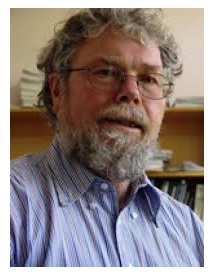
Emeritus Professor Warren Tate
from University of Otago in New Zealand - is an internationally respected biochemist, winner of the Royal Society of
New Zealand's top science honour - the 2010 Rutherford Medal, and was also named a Companion of the New Zealand Order of Merit.
His honour citation noted that Professor Tate was a molecular biologist, whose research had "revolutionised understanding" of
how proteins were synthesised in living cells. His research had shown how proteins contributed to memory formation and neurological disease,
and had important implications for HIV, Alzheimer's and chronic fatigue syndrome.
Emeritus Professor Warren Tate FRSNZ CNZM
• Professor Warren Tate has been an academic and researcher at the University of Otago in Dunedin, New Zealand spanning 54 years.
• He is a Fellow of the Royal Society of New Zealand, and internationally, a Fellow of the Alexander von Humboldt Foundation of Germany, and was an International Research Scholar of the Howard Hughes Medical Institute of the United States.
• He is currently an Emeritus Professor working full time but having formally retired in 2020
• Professor Tate’s research currently has a strong interest in unexplained human diseases.
• Initially he was a discovery molecular biologist with a fundamental interest in how proteins are made in our cells, and how protein synthesis and the genetic code arose 3-4 billion years ago. He co-discovered a new rare mechanism of gene regulation, translational frameshifting.
• Professor Tate also works on mammalian memory and Alzheimer’s disease and the development of a potential therapeutic agent based on a natural neuroprotective brain protein, secreted amyloid precursor protein alpha.
• Most recently in 2012 he established a research programme on Myalgic Encephalomyelitis /Chronic Fatigue Syndrome (ME/CFS) focussing on preclinical studies with New Zealand patients.
• Professor Tate approaches research on ME/CFS through the dual lens of an affected family of 30 years and a biomedical researcher. He has found molecular signatures for the illness supporting its biological basis and is now studying whether Post Covid-syndrome (Long COVID) long haulers who have ongoing illness from SARS-CoV-2 infection have the same molecular signatures found in ME/CFS.
Professor Tate is a Fellow of the Royal Society of New Zealand and of the New Zealand Institute of Chemistry.
He has been a Fellow of the Alexander von Humboldt Foundation of Germany, and an International Research Scholar of the Howard Hughes Medical Institute of the United States.
Read more:https://www.otago.ac.nz/biochemistry/people/profile/index.html?id=37
Professor Dr. Tanja Lange, Department of Rheumatology, University of Lübeck, Lübeck, Germany
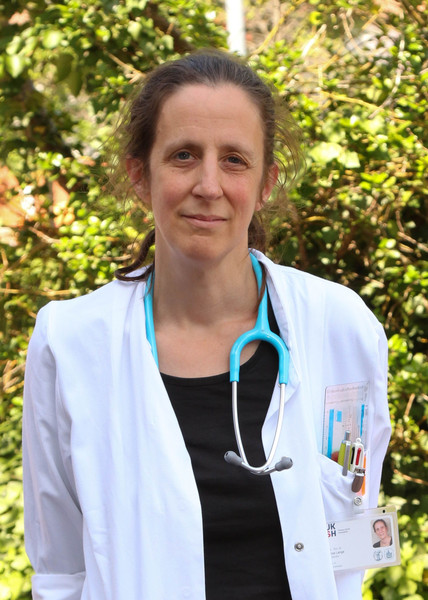
After Medical School Prof. Lange combined her clinical training in Internal Medicine with basic research on sleep-immune interactions in healthy individuals in the frame of DFG-funded interdisciplinary consortia on sleep and (immunological) memory formation. After her board certification and habilitation in Internal Medicine, she started her clinical training in Rheumatology, received a professorship for psychoneuroimmunology and currently delineates brain-immune interactions in patients with systemic autoimmune diseases.
Source: https://northship.org/about-us/tanja-lange/
Read more:https://www.grk1727.uni-luebeck.de/people/associated-scientists/tanja-lange.html

